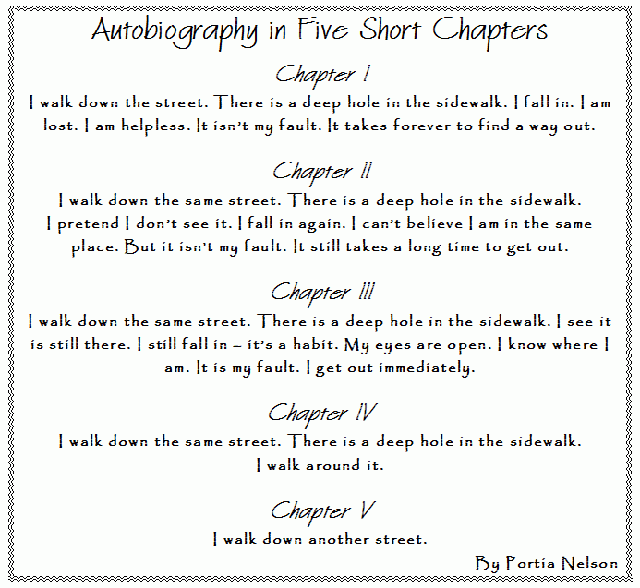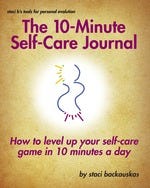The Stages of Speaking Up for Yourself
I have no issue standing up for others, but when it comes to addressing those who’ve trampled on me, it’s been a different story.
In the past, when someone has been mean or bullied me, my default was to understand why they behaved the way they did. Part protection from prolonged conflict, part difficulty in believing someone would treat me this way, that response kept me safe from continuing the confrontation. But it seems I have entered my “come at me and there will be consequences” era.
This hasn’t been a conscious choice on my part, but a natural evolution of the commitment to take better care of myself and deepen the love and appreciation I have for me.
For evolution to take place, you need to be presented with the opportunities to practice the change. This can be so much fun. Said no one ever.
What this means is that I’ve been trampled on, or at least an attempt has been made, a couple of times recently. Both encounters were with bullies who wanted to get their way regardless of the impact on me.
The first time, I was able to speak up a bit in the moment. In the past, this wasn’t an option because of a dysregulated nervous system and the inability to communicate articulately when angry. (I plan to write about the details of each experience in The Nervous System: Before and After series).
I said what I could in the moment, but when I realized there was more to add, I addressed this person and said my piece a couple of weeks later. It’s important to add that I celebrated what I was able to communicate during an experience that had really thrown me into a tailspin. I know that self-validation was a huge part of finding the courage to return to this person and tell them how I felt.
During the second incident, I naturally stood up for myself and refused to back down in the face of a fairly aggressive bully. I observed my behavior rather than thinking about how I wanted to act. To me this signals that the response has become a part of me rather than something I need to walk through, step by step.
In thinking about the lessons from these last two encounters, I clearly saw the stages I’ve been through, and the one I’ve almost reached, in the process of learning how to speak up for myself.
They remind me of the poem Autobiography in Five Short Chapter by Portia Nelson.
Here are my Seven Stages for Speaking Up for Yourself in the midst of someone else’s bad behavior (yours may be different). Like the stages of death and dying, they are not linear and revisiting the same one repeatedly is not only possible, but probable. In between each step you practice better and better self-care, which moves you more gently into another stage.
One: you recognize that someone has trampled on you, or is trying to, but the thought of doing anything about it terrifies you into paralysis. You feel twisted inside because the energy of the external chaos has lodged in your body. It takes a while for it to dissipate but it never goes away completely.
Two: you recognize it and want to say something but the fear engulfs you and so you either externalize or internalize your feelings. You bully someone, you pick a fight, you eat too much or drink too much. You do what you can to quell the internal chaos - food, cigarettes, drugs, alcohol or even mindlessly scrolling social media and binge watching. But it’s still in you, waiting for an opportunity to be heard.
Three: you lose your s*** in the moment unable to contain the rage at all those who've come before. You feel bad and apologize for your own bad behavior or make amends in another way, which delays your progress in moving to another stage because now you’re stuck in the anger toward yourself for not only popping off but for having to fix it.
Four: You recognize being trampled and still don't do anything in the moment but are driven not to stay silent. You craft an email or a note, or if you can find the courage, address the other person all while trembling inside. You ruminate when it's over and question how it might have been different.
Five: You refuse to back down. You stand your ground and say what you need to without violence, which is more than just physical altercations. It includes raising your voice, hurling insults, or calling someone names. You still tremble inside and carry it with you for the rest of the day and perhaps even days after. You think about it and try to figure out how you could have done things differently.
Six: you stand your ground without violence or trembling inside, yet you still carry it with you outside the experience. Maybe for hours, maybe for days. You let the fear of retaliation invade your peace. But it doesn't last as long. Perhaps you return and say what you need to after the experience.
Seven: you stand your ground. You don't tremble inside and after you say your piece, you're done. It's like eating breakfast, when it's finished there's nothing left to think about.
~~~~~~~~~~~~~~~~~~~~~~~~~~~~~~~~~~~~~~~~~~~~~~~~~~~~~~~~~~~~~~~
Level up your self-care game and experience the freedom that comes from being more authentically you. Click on the book for more details.



